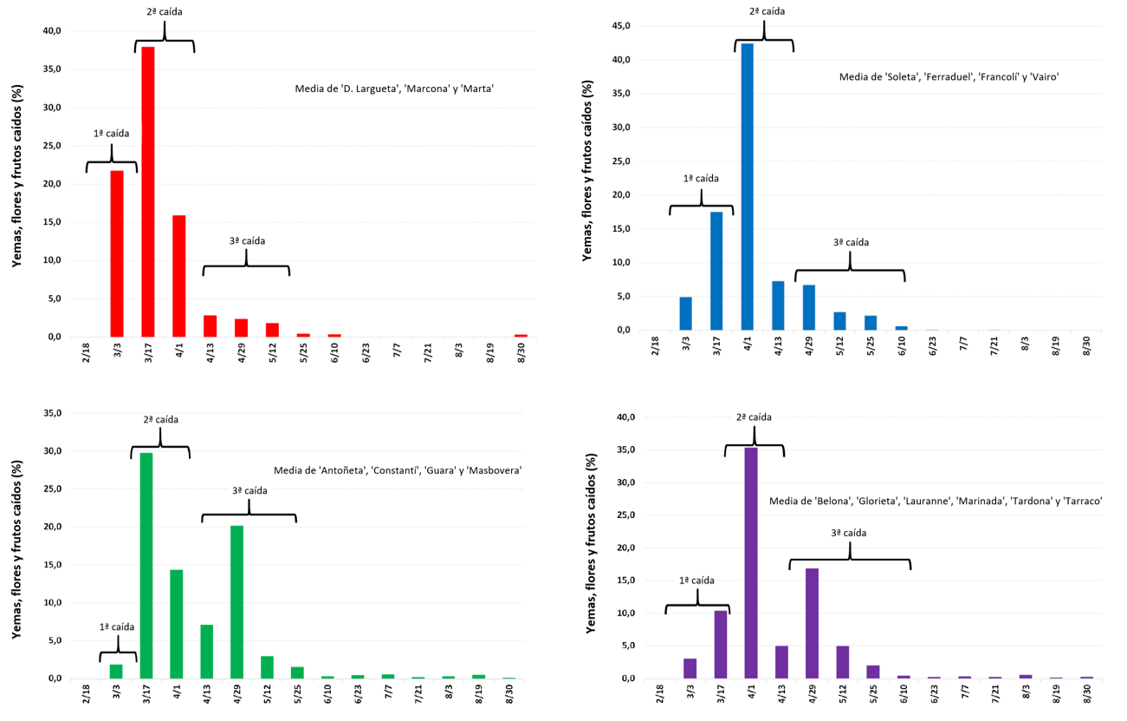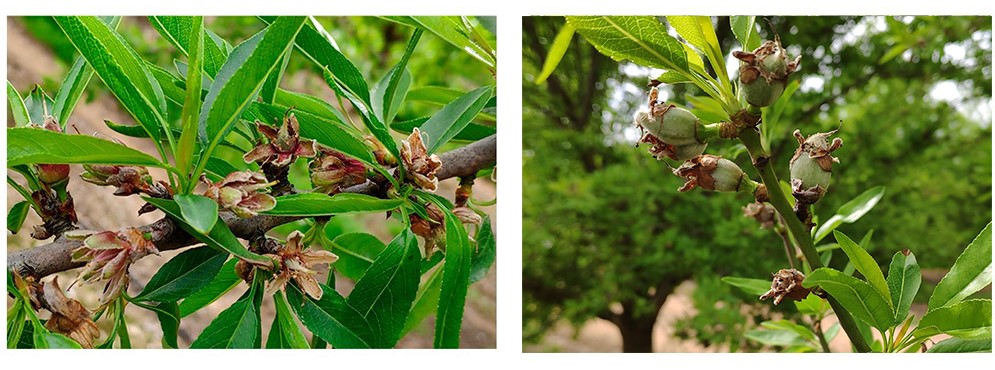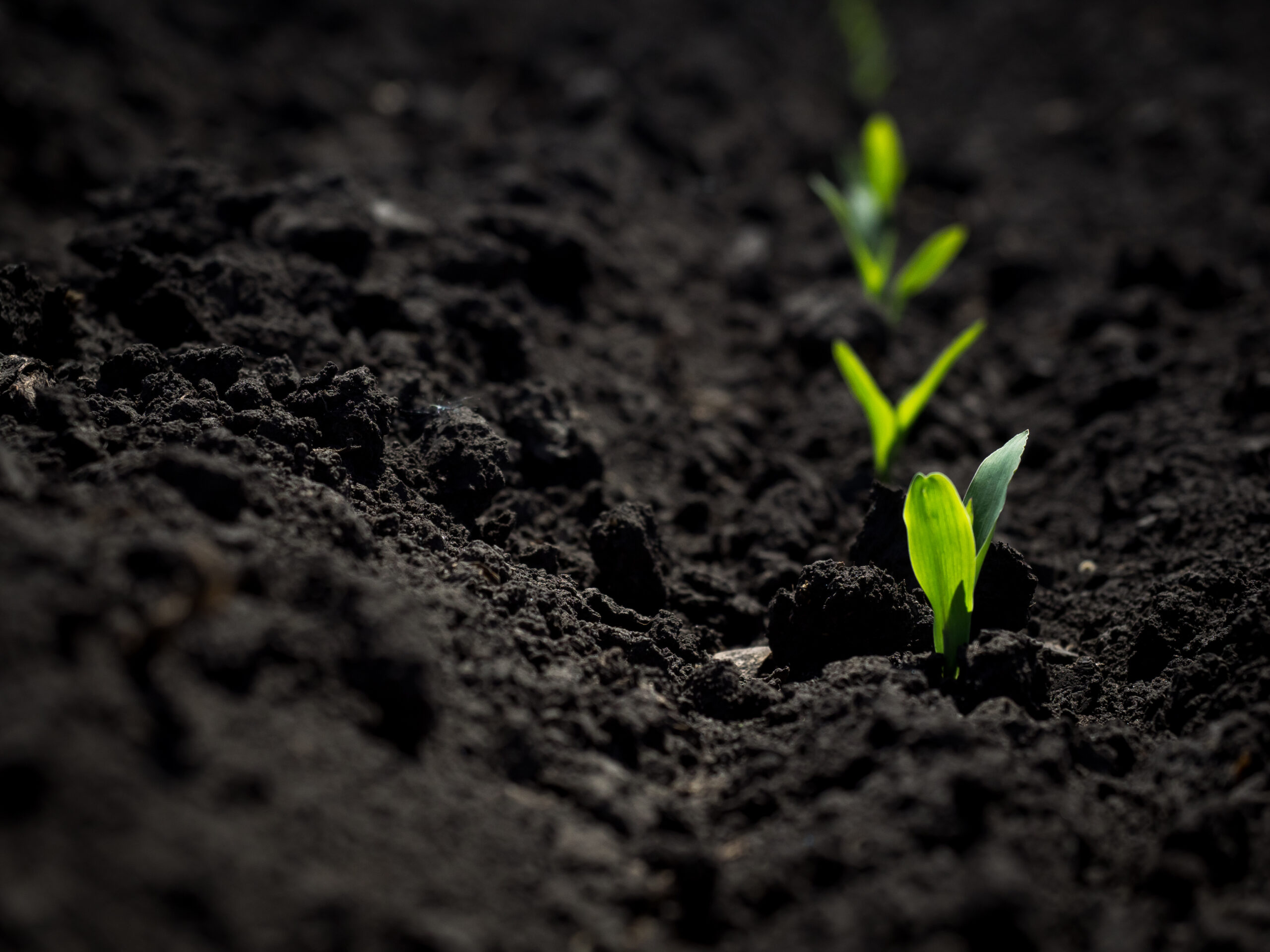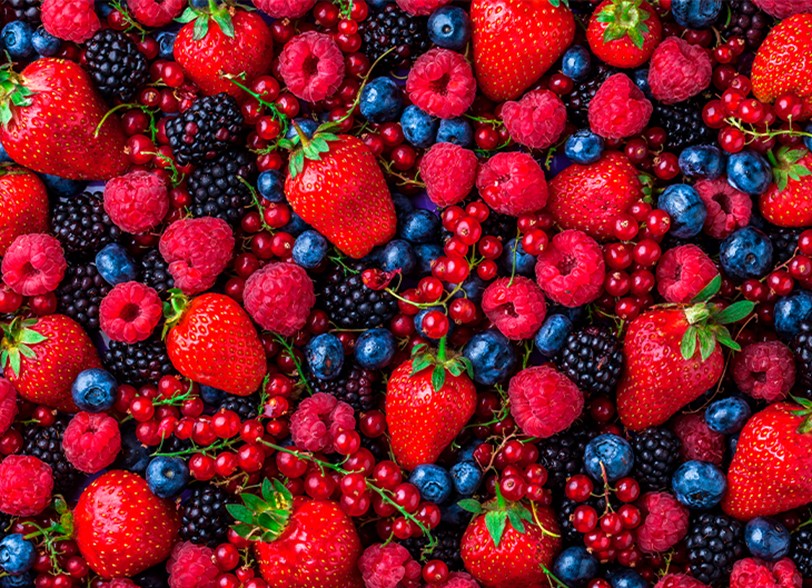In the cultivation of the almond tree, productivity depends mainly on the number of flowers produced, the percentage of fruit set and the weight and number of fruits collected. These parameters, dependent on the genotype of the variety, are defined in the induction and floral differentiation (previous year) or by the falls of flower buds, flowers and fruits (current year). They can also be modulated by agroclimatic conditions and/or by agronomic management (Miarnau et al. 2018).
In 2015, IRTA (Institut de Recerca i Tecnologia Agroalimentàries) began a series of tests to know and characterize the fall processes in different late flowering varieties, determining three physiological falls (Figure 1) coinciding with what was described by Polito et al. (1996) and Kester and Griggs (1958).

The following physiological falls are described:
- – The 1st fall (flower buds and defective flowers) happens both the days before and during flowering.
- – The 2nd fall (unfertilized flowers and small fruits) takes place one month after flowering.
- – The 3rd fall (fruits) happens between 6 and 7 weeks after flowering, causing a large drop in these due to competition between them.

Applications of our prodruct AM·EN®
In this sense, Agrométodos has developed a series of studies with our product AM·EN® to know its incidence on the 2nd and 3rd physiological fall in the cultivation of the almond tree.
The results obtained in these studies, carried out in different locations of the Iberian Peninsula, in different varieties (Antoñeta℗, Belona℗, Lauranne℗ – Avijor, Marcona, Soleta℗ and Vairo℗), ages, planting systems and agronomic management, show that the applications of AM·EN® with respect to untreated areas:
- – They regulate the physiological fall and the mooring of the fruits and, consequently,
- – They produce an increase in harvest without losing quality.
In the crop of the almond tree it is recommended to use AM·EN® in foliar spraying at the dose of 0.3% (3 L / 1000L of water) with the fruit freshly set (fall of petals “G” – fall collar “H”) and repeat a 2nd application at 15-20 days (fruit in growth “I”).
Likewise, AM·EN® is a product that respects auxiliary fauna that does not generate waste or safety period and that is authorized for use in Organic Agriculture and registered as an input by FiBL and can be used by Demeter certified farmers.




